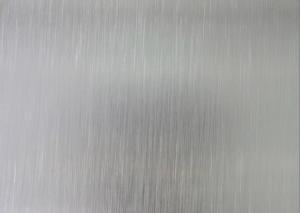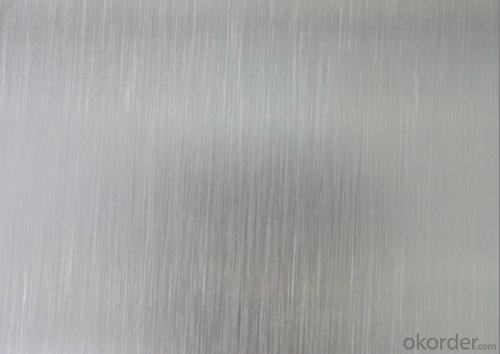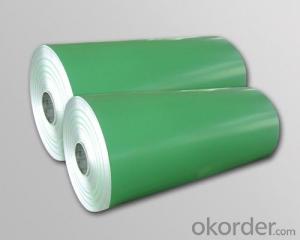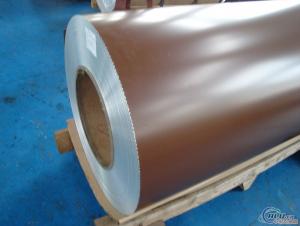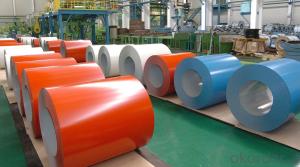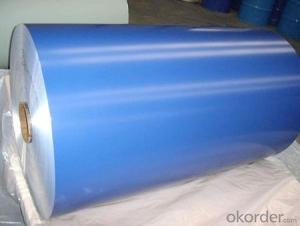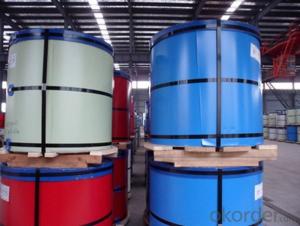Lennox Aluminum Coils - PE Coated Embossed Aluminium Coil AA8011
- Loading Port:
- China Main Port
- Payment Terms:
- TT or LC
- Min Order Qty:
- -
- Supply Capability:
- -
OKorder Service Pledge
OKorder Financial Service
You Might Also Like
1.Structure of Product Description
PE Coated Embossed aluminium coils are widly used in decoration field, especially in Africa. For the period, it depends on the using evironment. If you use in the open air, it can remain 5-10 years.. If you use in the room, we recommend PE coated aluminium coils. The price is much more competitive.
2. Main features of the product
a.Competitive price---We have our own mills and can produce mill finished aluminium coils, so we can control the production cost better.
b.Professional after-sale service---We have more than 15 years exportation experience and you need not worry about the exporation problems.
c.Fast delivery time---We can control the delivery time within 35 days.
3. Image
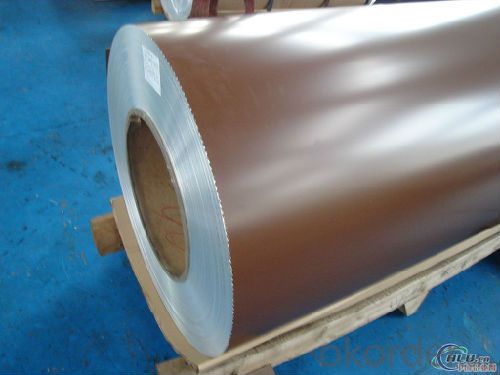
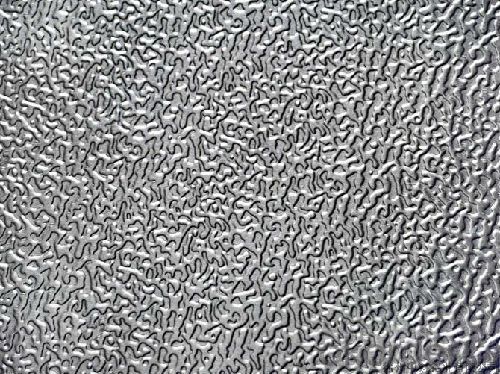
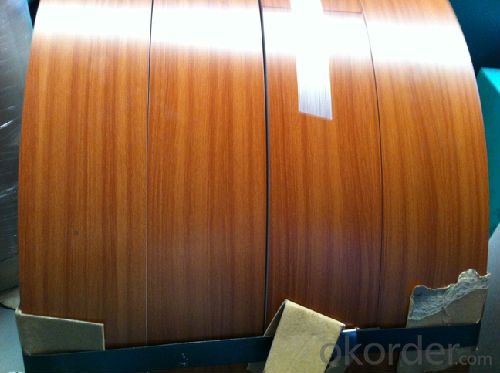
4.Products Specification
| Alloy | Temper | Thickness | Coil Weight | Coil ID |
| AA8011 | H18 | 0.2-0.5MM | 2 tons | 508mm+/-10mm |
5. FAQ:
What is the quality standard?
---Usually our standard is GB3880-2006
What is the largest width?
---It is 2300mm
What is the MOQ?
---Usually we can accept 80 tons.
- Q: What’s the standard of tensile strength and ductility of aluminum coil 3003?
- Detailed description can help resolve problems quickly. Performance and status is a related. As aluminum coil is usually semi-hard, the tensile strength is greater than or equals 150, ductility is greater than or equals 12.
- Q: Is it possible to recycle aluminum coils without any loss in their quality?
- <p>Yes, aluminum coils can be recycled without damaging their quality. Aluminum is one of the most recycled materials due to its ability to be recycled indefinitely without any loss in quality. The recycling process involves melting the aluminum, which can then be reshaped into new coils or other products. This process is energy-efficient and environmentally friendly, as it requires significantly less energy than producing aluminum from raw materials. Recycled aluminum maintains the same strength, durability, and appearance as new aluminum, making it a sustainable choice for various applications.</p>
- Q: Are aluminum coils suitable for solar panel frames?
- Yes, aluminum coils are suitable for solar panel frames. Aluminum is a lightweight and corrosion-resistant material, making it ideal for use in solar panel frames. It is also highly durable and can withstand various weather conditions, ensuring the longevity of the solar panel structure. Additionally, aluminum is easy to work with and offers excellent heat dissipation properties, which is crucial for solar panels as they generate heat during operation. The use of aluminum coils in solar panel frames helps to enhance the overall efficiency and performance of the solar panel system.
- Q: What is the typical thermal conductivity of aluminum coils?
- Aluminum coils typically exhibit a thermal conductivity ranging from 205 to 220 W/mK. Renowned for its exceptional thermal conductivity, aluminum stands as a favored option for heat transfer purposes, notably within HVAC systems, refrigeration units, and heat exchangers. The remarkable thermal conductivity of aluminum facilitates effective dissipation and transfer of heat, thereby guaranteeing peak performance and energy efficiency in said systems.
- Q: How are aluminum coils used in the production of power transmission lines?
- Aluminum coils are commonly used in the production of power transmission lines due to their excellent electrical conductivity and lightweight properties. These coils are typically wound around a core material to create the conductor, allowing for the efficient transmission of electricity over long distances. The use of aluminum coils reduces the overall weight of the transmission line, making it easier and more cost-effective to install and maintain. Additionally, aluminum's corrosion resistance ensures the longevity and reliability of the power transmission system.
- Q: I'm 14 an was told that aluminum free deodorant would stop yellow stains on my white shirts, so which female deodorant would help stop yellow stains
- Deodorant with aluminum also causes breast cancer. I use Toms of Maine deodorant, which is aluminum-free.
- Q: This question asks for a comparison between single-coil and multi-coil aluminum tubes, highlighting their differences.
- <p>Single-coil aluminum tubes are made with a single layer of aluminum wound into a cylindrical shape, offering simplicity and ease of manufacturing. They are typically used in applications requiring basic heat exchange or formwork. In contrast, multi-coil aluminum tubes consist of multiple layers of aluminum wound together, which can provide greater strength and durability. They are often utilized in more demanding applications where higher pressure resistance and thermal efficiency are required, such as in high-performance heat exchangers or industrial processes. The multi-coil design also allows for better heat distribution and can handle more stress without deformation.</p>
- Q: Is it safe to use steel wires for making jewelry or decorative items, and are there any potential health hazards associated with it?
- <p>Using steel wires for jewelry or decorations generally poses minimal health risks when used properly. However, there are a few considerations: allergic reactions can occur in individuals sensitive to nickel, which is often found in stainless steel. Additionally, improper use or sharp edges can lead to cuts or injuries. It's important to ensure that the steel is of high quality and that any jewelry made is smooth and free of sharp points to minimize the risk of injury. Regular cleaning and maintenance are also recommended to prevent any potential health risks associated with bacteria buildup or skin irritation.</p>
- Q: Can aluminum coils be used in the manufacturing of cans and containers?
- Yes, aluminum coils can be used in the manufacturing of cans and containers. Aluminum is a lightweight and durable material that is widely used in the packaging industry. Aluminum coils are typically rolled into thin sheets, which are then cut and formed into the desired shape for cans and containers. These coils provide a cost-effective and efficient way to produce large quantities of cans and containers, as they can be easily processed and shaped. Additionally, aluminum is a highly recyclable material, making it environmentally friendly and sustainable for the packaging industry. Overall, aluminum coils are commonly used in the manufacturing of cans and containers due to their versatility, durability, and recyclability.
- Q: can you use the Brasso Aluminum cleaner on aluminum wheels? i have a set of mickey thompson classic II wheels and i want to polish them up. they have water spots that are almost impossible to clean. how can i shine them up to make them almost like chrome wheels? i heard brasso works great but then i heard it damages the wheels?
- Brasso On Aluminum
Send your message to us
Lennox Aluminum Coils - PE Coated Embossed Aluminium Coil AA8011
- Loading Port:
- China Main Port
- Payment Terms:
- TT or LC
- Min Order Qty:
- -
- Supply Capability:
- -
OKorder Service Pledge
OKorder Financial Service
Similar products
Hot products
Hot Searches
Related keywords
